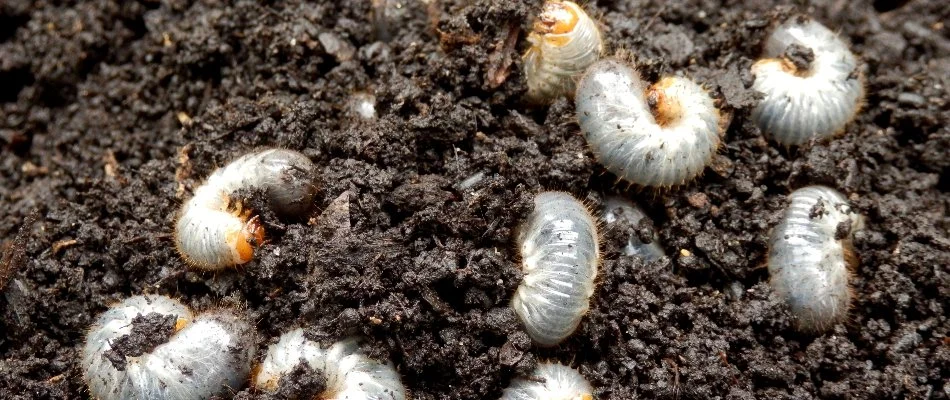
Residential and commercial property owners in Indiana should invest in preventative grub control treatments to avoid the potential consequences that come with a grub infestation. Preventative grub control involves applying treatments in the early summer to target and prevent grub infestations. These treatments work by creating a barrier that deters grubs from damaging the lawn. Failing to invest in preventative grub control can lead to a host of problems, including extensive damage to the turf, having to invest in curative grub control treatments, and needing to schedule lawn care services to help your grass recover from damage. It is best to be proactive and schedule preventative grub control to ensure a healthy and thriving lawn throughout the year.
What is preventative grub control and how does it work?
Preventative grub control refers to the proactive treatment applied to your lawn to prevent or minimize the damage caused by grub infestations. Grubs are the larvae of beetles, such as Japanese beetles or June bugs, and they feed on the roots of grass, leading to significant lawn damage. Preventative grub control treatments typically involve the application of insecticides that target and eliminate the grub larvae before they can cause harm. The insecticides used in these treatments are designed to disrupt the grubs' life cycle or interfere with their feeding habits. By applying preventative grub control, you can significantly reduce the risk of a grub infestation and protect the health and appearance of your lawn.
What are the consequences of skipping out on preventative grub control treatments?
Skipping out on preventative grub control treatments can leave your lawn vulnerable to a host of issues. Grub infestations can lead to extensive lawn damage, as the larvae feed on the roots of grass, causing brown patches, weakened turf, and even complete lawn death. Once grubs have established themselves in your lawn, it can be challenging and stressful to address the infestation.
If you do experience a grub infestation, you will have to schedule a curative treatment to combat the existing grubs. This treatment typically involves applying insecticides specifically designed to target and kill grubs. Investing in preventative grub control treatments is crucial to avoid the hassle, expense, and frustration associated with curative treatments. After the grub infestation has been dealt with, you will likely need to schedule lawn care services like lawn fertilization, aeration, and overseeding to help your lawn recover.
When should preventative grub control treatments be applied?
The best time to apply preventative grub control treatments is in early summer. This timing coincides with the life cycle and behavior of grubs. During the early summer months, the grubs are in their young and most vulnerable stage, feeding actively near the soil surface. Applying preventative treatments at this time effectively targets and eliminates the larvae before they can cause significant damage to your lawn.
By applying preventative grub control in early summer, you can disrupt the grubs' life cycle and prevent them from maturing into adult beetles that lay eggs for future generations. It is important to note that the timing may vary slightly depending on the specific grub species prevalent in your area, so it’s best to defer to the recommendations of lawn care professionals.
Give us a call today to schedule our preventative grub control treatments!
Protect your beautiful lawn from the devastating effects of a grub infestation by investing in our preventative grub control treatments. Skipping these crucial treatments can leave your property vulnerable to a potential grub invasion, resulting in extensive damage to your lawn. As a reputable company serving property owners in Carmel, Fishers, Westfield, and surrounding areas in Indiana, we prioritize the importance of prevention. Don't let the grubs take hold of your lawn and compromise its health. Call us today at (317) 350-1737 to schedule our preventative grub control treatment and ensure your lawn remains lush and vibrant.



Comments (0)
Thanks for your comment!
Thanks for your feedback! Your comments have been successfully submitted! Please note, all comments require admin approval prior to display.
Error submitting comment!
There is a problem with your comment, please see below and try again.